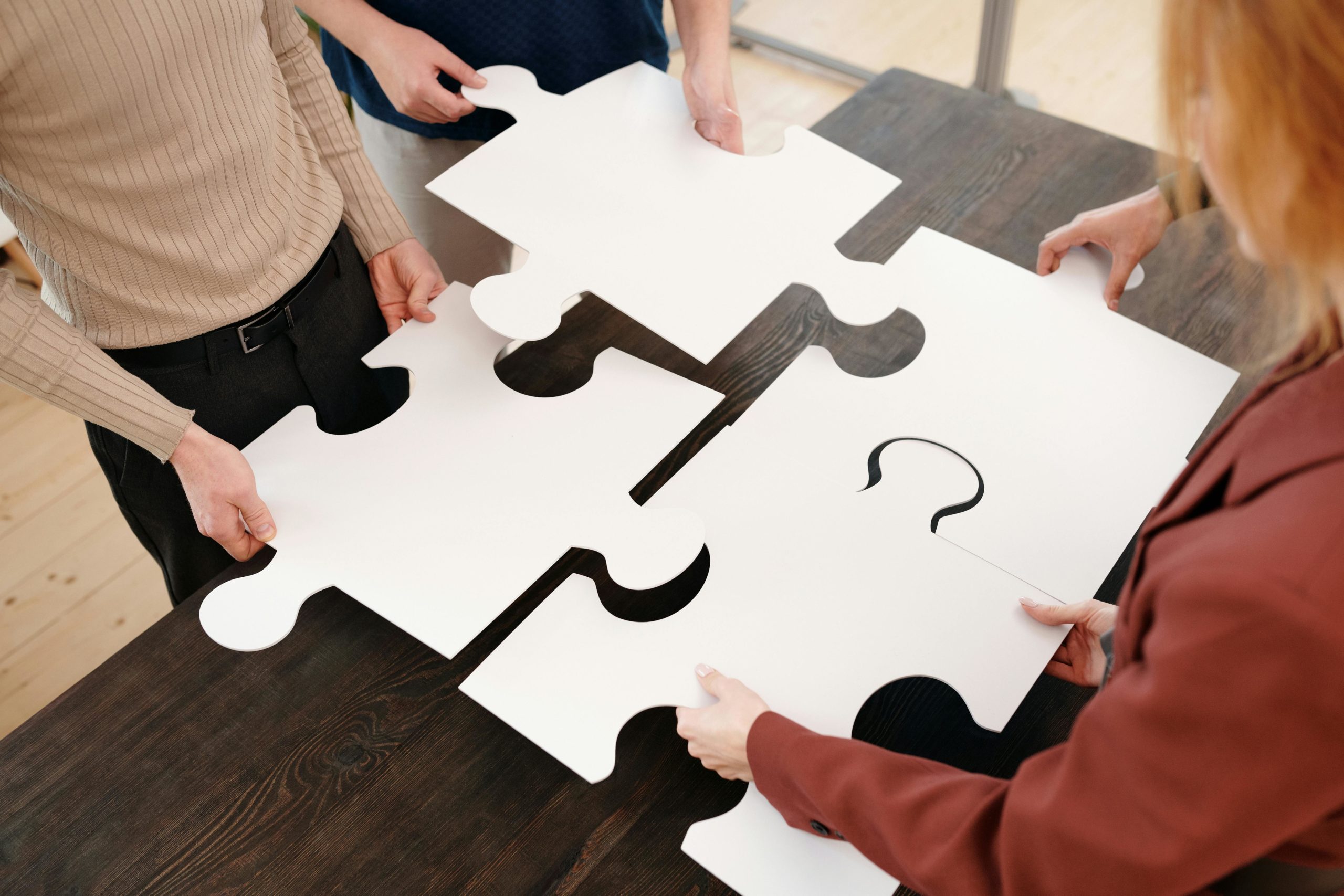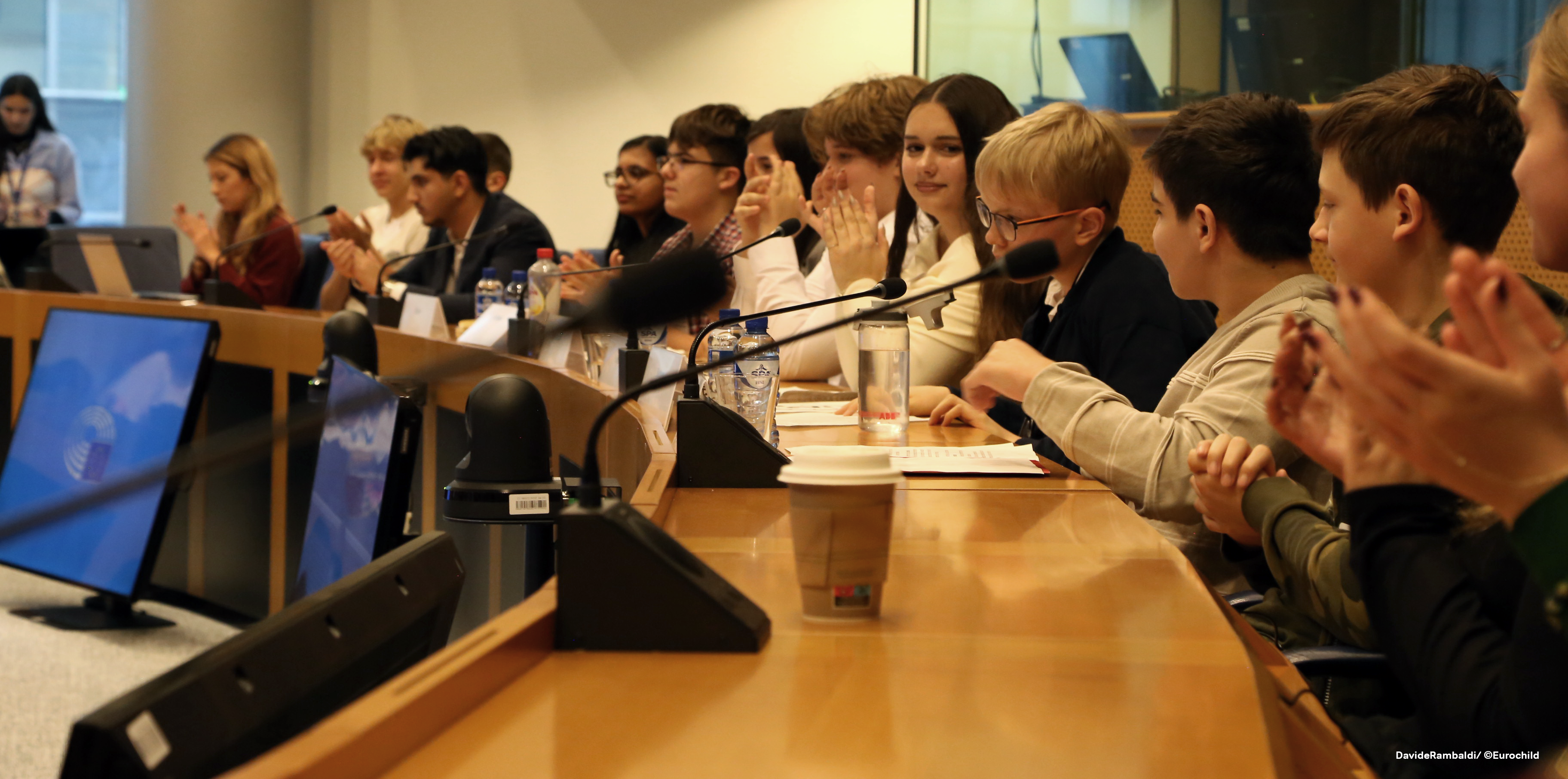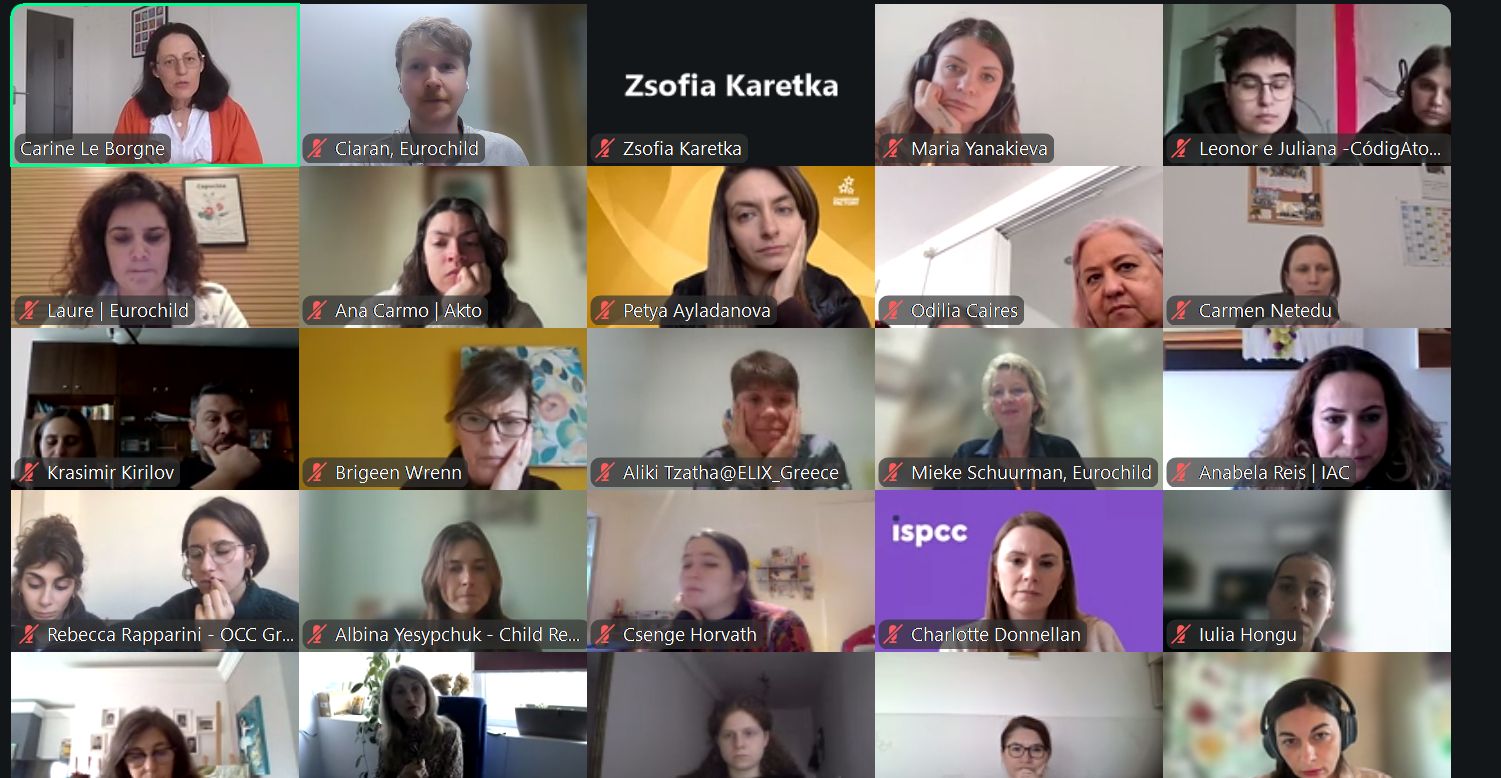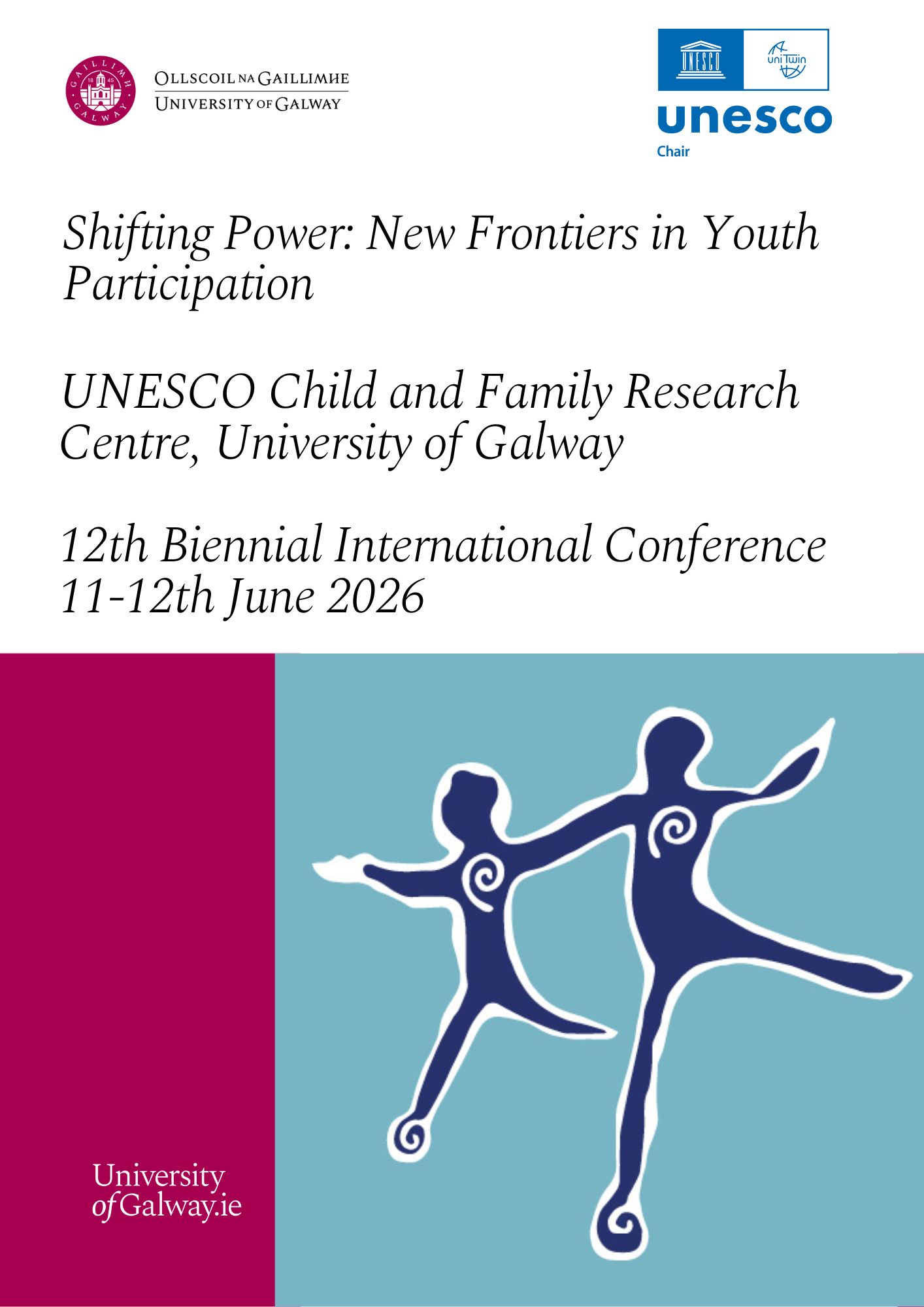A go-to guide for local child participation – lessons from Bulgaria, Croatia and Hungary
On 13 March 2025, Eurochild hosted a transnational peer-to-peer exchange as part of its Child Citizens project, funded by the EU Citizens, Equality, Rights and Values (CERV) programme.
Across the Eurochild network, our members are leading initiatives like those from Bulgaria and Croatia shared during this exchange. Eurochild members are leading change at local and national level to connect children’s voices with decision-making that affects them, as is their right, as set out in Article 12 of the United Nations Convention on the Rights of the Child. We are thankful for each of the participants and hope these discussions spark more meaningful child participation activities.
As part of a capacity-building activity to share best practices in child participation, Eurochild brought together professionals working in Józsefváros, Budapest’s 8th District, with our members the National Network for Children, Bulgaria and Society “Our children” Opatija, Croatia, who lead their country’s National Eurochild Forums (NEFs). This activity is part of Eurochild’s Child Citizens project, funded by the EU CERV programme.
Eurochild NEFs, led by our members in six countries (Bulgaria, Croatia, Estonia, Malta, Ukraine and Wales) are doing inspiring work share the voices of children aged 10-18 years old from diverse backgrounds in their countries. Eurochild amplifies these voices across Europe, through peer-exchange, advocacy, and research – including a new report on children’s mental health (forthcoming).
In our exchange, participants shared reflections on creating, embedding, and sustaining meaningful participation of children at local level. Highlights include:
Antonia Katić, from Society "Our children“ Opatija, Croatia
The children selected in the Croatian NEF come from all over the country. Participating children are aged 10-15 and come from children’s councils and forums across the country. Antonia, who coordinates the NEF, shared their experience in building strong child participation communities with participants:
- We had several projects showcasing child participation in practice, Activate the Change in your Community; For a Children’s Voice in Europe; Children Around Us – an exhibit that travelled all over the country to promote and celebrate beauty and diversity all around us.”
- Challenges: “We have monthly online meetings, and we also organise an in-person meeting all together once a year. But there are challenges: the children come from all over Croatia, and the costs of organising these events can be a barrier. Having time to build capacities of professionals who work with children is really important too.”
- “Despite challenges, the outcomes of our work are always so beautiful. You get to meet so many amazing children who become part of a bigger network. Our work has been highlighted as a good practice in the Republic of Croatia’s National Plan for Children’s Rights!”
Kristina Nenova, from National Network for Children (NNC), Bulgaria
In Bulgaria, the NEF is part of NNC’s Megaphone programme, which has been running since 2019. In her exchange, Kristina shared more about how children in Bulgaria inform the direct work of the National Network:
- “The work we do with children, including their work on mental health, informs the Report Card that NNC publishes every year to monitor how the Bulgarian government is taking care of children and families. We have also an annual event, called “VOICE IT”, where children share views on topics that are important to them.”
- “Children also present at the annual meeting of the National Network for Children to provoke discussions and more research on their identified topics!”
- Challenges: “You don’t know everything at the start of the journey, and that’s ok. It’s very important to learn from the young people involved in these processes. I believe that it’s like the first time with every new group and new young people – we are all new in everything, and it’s a good perspective to remember.”
Vera Merker, Community Organiser, Józsefváros Municipality
The Józsefváros Municipality Community Participation team works with children and young people in a neighbourhood where there is a lot of poverty and social exclusion, and where decision-making and power can feel far away from children’s everyday lived reality. Vera, who works in the team, shared reflections on her experiences these past years:
- “The most important thing I have learnt is communicating and listening to children’s ideas. We are really hopeful with the help of the professionals (in early years, schools, and youth centres) that we can give them a chance to actually have a say in their own surroundings.”
- “We gathered the young children’s ideas by talking to them and through creative workshops. What we have learnt with the professionals in our community together is that if you give children space to share their ideas and open up, you will be so surprised."
As a result of this programme, children from the across the municipality’s nursing schools, community centres, and child & youth clubs have voted on incredibly varied ideas to improve their communities. These include: community gardens, public clean-up campaigns, animal-assisted therapy, creating a professional music studio, joint parent-child cooking, to improving local squares and courtyards for improved play experiences, and more!
Click here for the full list of children and young people’s submitted ideas. While in Hungarian, the team has made sure they are really visual and to help with accessibility.
More information:
- For more information on the Child Citizens project, contact Laure Pailleau and Ciaran O’Donnell from the Eurochild Secretariat.
- Learn about this child participation initiative at the Józsefváros Municipality’s website.





